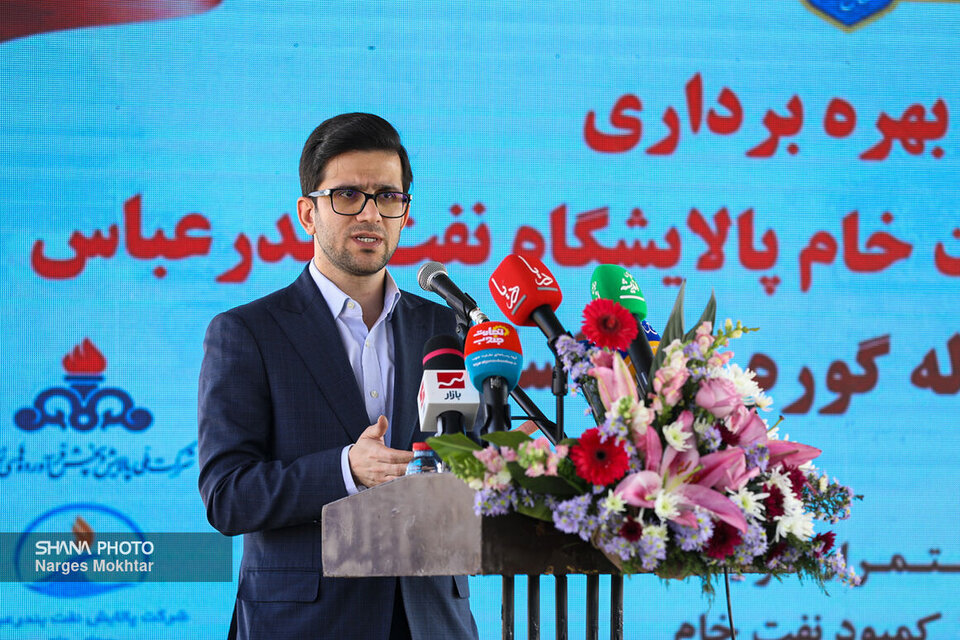Speaking on Thursday at the inauguration of the crude oil supply project for the Bandar Abbas refinery, Mohammad-Sadeq Azimifar described the initiative as one of the most strategic projects in the country’s refining industry in recent years.
He stated, "With this project, we have effectively utilized the Goreh-Jask pipeline to ensure a stable supply of crude and maximize the production of petroleum products at the Bandar Abbas refinery."
Azimifar emphasized that the refining and distribution sector has prioritized key actions to fulfill its mission of producing and supplying petroleum products, addressing energy imbalances, and completing the value chain. These efforts align with the goals outlined in the Seventh Development Plan.
"The first focus is on petroleum product production, where the National Iranian Oil Refining and Distribution Company (NIORDC) aims to enhance efficiency and fully utilize the existing refinery capacity," he said.
Boost in fuel production capacity
Azimifar, who also serves as the CEO of NIORDC, noted that since the start of the 14th administration, the focus has been on leveraging unused refinery capacity.
"In just four months, we have increased daily gasoline production by about 11 million liters and diesel production by approximately 12 million liters," he added.
Addressing imbalances requires more than just production
He highlighted that NIORDC’s medium- and long-term plans through the end of the 14th administration are centered on completing refining projects. These include quality enhancement initiatives for existing refineries and new refinery projects.
"These efforts aim to achieve daily production of 130 million liters of gasoline and diesel by the end of the 14th administration," he said.
Azimifar acknowledged that solving energy imbalances cannot rely solely on increased production.
"NIORDC has implemented multiple measures in areas such as consumption optimization, efficiency improvements, and fuel smuggling prevention. The results of these efforts will soon be evident," he added.
Expansion of Transportation Infrastructure
The CEO emphasized the importance of developing transportation infrastructure for both feedstock and product distribution.
"We need a stable and timely supply of feedstock and products nationwide. Since the beginning of the 14th administration, we have successfully launched two strategic projects in Hormuzgan Province and Bandar Abbas: connecting the Bandar Abbas refinery to the Goreh-Jask pipeline and completing the first phase of a new 460-kilometer product pipeline from Bandar Abbas to Rafsanjan," he explained.
Azimifar announced that by the end of the year, the Sabzevar-Rey pipeline and connections to two power plants will also be operational.
"An additional 1,000 kilometers will soon be added to the country’s crude oil and petroleum product pipelines, increasing the total length from 14,000 to 15,000 kilometers," he concluded.
Finally, Azimifar expressed his gratitude to Hamid Bovard, CEO of the National Iranian Oil Company, Mohammad Meshkinfam, CEO of the National Iranian Oil Engineering and Construction Company, and Ahmad Hashemi, CEO of the Bandar Abbas Oil Refining Company, along with all individuals involved in the execution of these projects.


Your Comment